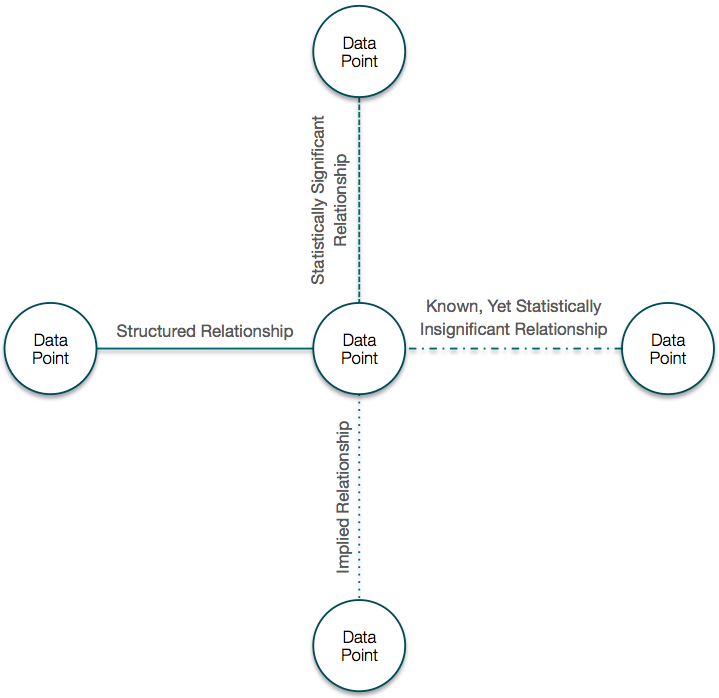Data Science, Big Data, Machine Learning, Deep Learning, Neural Networks, Artificial Intelligence … so many buzz words to choose from, yet Gartner reports that “85% of Fortune 500 organizations will be unable to exploit big data for competitive advantage.” Why is that?
The answer is simple; the solution is not. The answer is, there is not enough relevant, high-quality data to solve the challenge at hand. Rather than debate whether companies already have all the Big Data that they need or how many variables does a company need to build Artificial Intelligence and/or Machine Learning solutions, let’s look at why it’s so hard to make those solutions in the first place.
Relationships Between Data
Data without context is rarely useful and thus to build intelligent applications, we need to understand relationships between data points.
There are different classifications of data depending on their relationship structure. Each relationship structure requires a different solution in order to turn data into meaningful insights.
Let’s look at some of those structures.
Structured Data: relationships are known, and simple algorithms are required to take full advantage of the data.

Statistically Significant, Unstructured Data: traditional Machine Learning techniques can discover statistically significant relationships between the data.

Statistically Insignificant, Unstructured Data: traditional Machine Learning techniques fail, these relationships require domain expertise in order to be revealed. Something that most Data Scientists lack.

Implied Data: Decision-Makers and end-users often consider a lot more variables when they make decisions that are recorded by the computer, making it incredibly hard to capture those variables, yet without capturing them the system’s performance cannot be improved.

At Logyc, we build artificial intelligence that is focused on identifying when actionable insights, that affect the outcome, are missing and leverages domain expertise to identify and capture missing data. This approach enables the system to learn at an exponential rate and provides companies an enormous amount of structured data that they can leverage across many applications to solve a wide range of challenges throughout the company.





